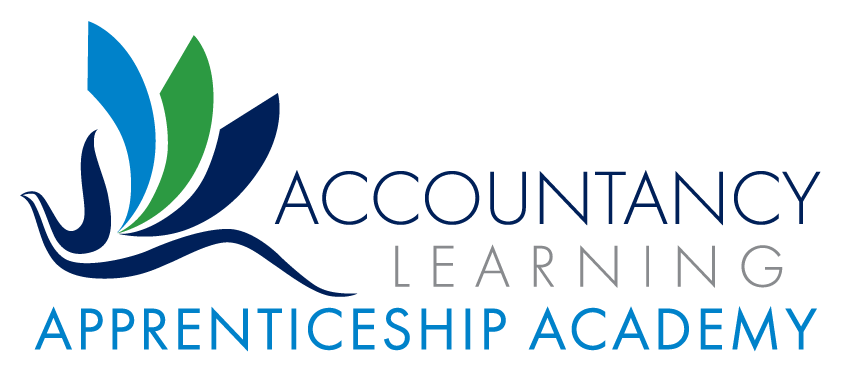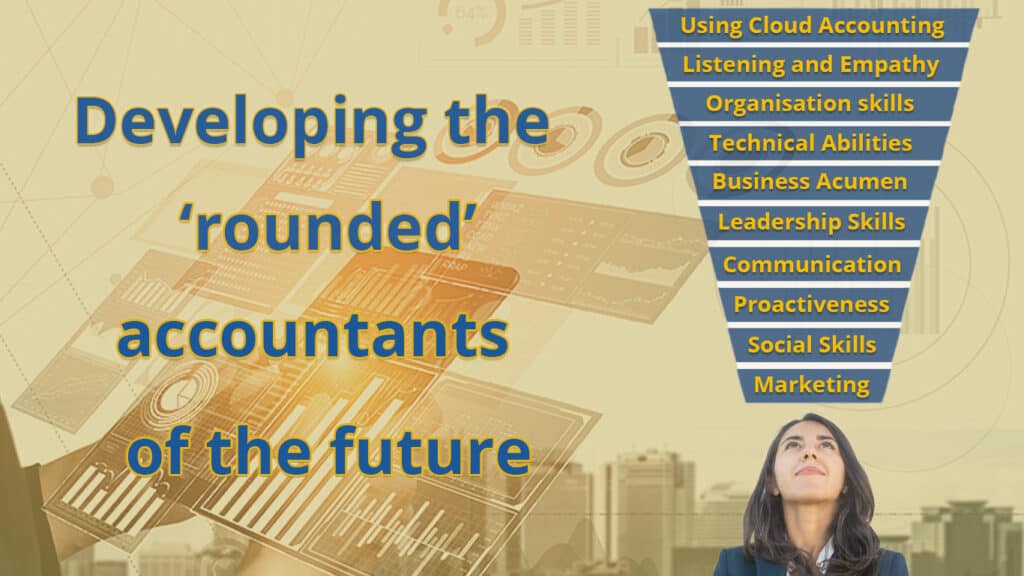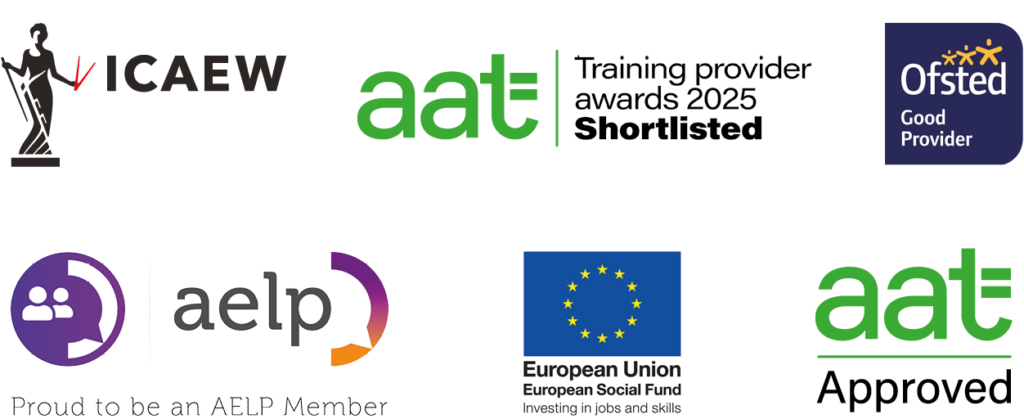Developing rounded accountants of the future
An accounting apprenticeship is not just about being an accountant and an accountant is not just about ‘number crunching’. Indeed, for many, the technical aspect of being an accountant is only a minor part of their role. Below we set out examples of the skill sets which are required when developing rounded accountants of the future, including developing rounded accounting apprentices.
Technical abilities of rounded accountants
Accountants will still need to prepare accounts and calculate tax returns, although with the increased uptake of cloud accounting software, the mechanics of this is becoming less of a requirement. They must also adhere to the plethora of tax and accounting regulations. This is what accountants are known for. Also, it is not just knowledge of these accounting regulations that is key, it is how they can be applied in differing practical situations. The application of Accounting Standards can sometimes seem more of an art form than a science. However, it is a combination of their technical abilities and the skills below which will make them stand out from the crowd and help to develop long lasting relationships with clients, employers, colleagues and business associates.
Business acumen of rounded accountants
Having the knowledge and gaining experience of non-accountancy issues which affect businesses is important. This, together with making suggestions for how businesses can overcome their issues, will help to differentiate them as the ‘go-to’ accountant. For those in practice, your clients are businesses and will expect you to advise them on their business. In reality, many of your clients will be great artisans, trades people, professional, technicians – however, not all are great business men and women. They also only really see their business. You will see many, often hundreds. You can disseminate your core knowledge for your clients benefit, obviously whilst maintaining the strictest of confidentiality.
So – do you get your apprentices and other trainees to sit in on your client interviews so they can learn this business acumen via “osmosis”. Do you brief them on what makes these businesses tick? Do you engage them with what makes your business tick?
Leadership skills of rounded accountants
The sign of a good leader is someone who takes on the responsibility to run the business. But they must also lead their team in an effective way so that everyone is in tune with the firm’s strategy and core values and the role each has to play within it. They must epitomise these core values. A good leader empowers people and shapes the future of the business. If you send someone on a journey, you tell them where they are going and may advise on how best to get there and provide the means to allow them to get there. Do you do the same thing in your business?
So – as your trainees progress, do you provide them incrementally with more responsibility for taking leadership on specific tasks and projects?
Communication skills of rounded accountants
Being able to engage with people using a variety of communication techniques is a valuable skill. This includes: speaking and engaging with staff, clients, business contacts etc; writing clear and concise letters and emails; writing articles for blogs and social media to demonstrate your area of expertise; practising your interview and media presentation skills which can be used for in-house website and social media videos, podcasts or external TV and radio interviews. Successful accountants understand that communication is not just about sending emails, it is also been able to get your message across in a variety of different methods.
So – do you encourage your trainees to gradually communicate more with clients, customers, suppliers, 3rd parties in order to build up their self confidence and their communication skills. Do you ask them to write copy for your promotional material and website – even if only as a testimonial on what a brilliant employer you are to work for!
Social skills of rounded accountants
The ability to talk and engage with people from different backgrounds and sectors is crucial. In ‘normal’ times, networking is one of the most important ways that accountants sign up new clients and develop relationships with existing clients. Likewise, picking up the phone to speak to someone is usually far more effective than sending lots of emails and helps to develop the business relationship further.
So – do you encourage your more experienced trainees to get involved with external organisations and networks? At what stage do encourage them to develop their presence on LinkedIn?
Proactiveness of rounded accountants
The best accountants are the ones who put their clients first. They take the first steps to keep them informed of issues or news that will affect them, and do not wait to be prompted by the client to do something. They are on the case all the time.
So – for those of you in accounting practice, on the notes and queries for manager / partner, do you require the team to always add two extra points:
- What one thing could we do to improve the efficiency or effectiveness of this assignment?
- What one thing could we do to improve the service we provide our client?
and perhaps a 3rd - What one thing could we suggest our client does to improve their business?
Listening and empathy skills of rounded accountants
These are two of the most important skills for any professional but are hugely relevant to accountancy. The ability to be able to actively listen, understand and show empathy towards your clients, staff, or potential clients, is vital.
So – if you encourage this, your staff are more likely to be able add those three points referred to immediately above.
It is very easy, when listening, to really be thinking about what you are going to say in response. Perhaps, before we respond, we should get into the habit of summarising what the other person has said, partly to ensure we properly understood it but mainly to make sure we actually listened!
Marketing skills of rounded accountants
In one form or another a successful accountant must have some involvement with marketing. That may be attending networking events, writing blogs for the website, presenting topical sessions at conferences or webinars, manning stands at local events and conferences and so on. Whilst marketing is very rarely on an accountant’s bucket list at the start of their career, it is a vital skill to develop if you want to be considered for promotions or if you are in a position whereby you have to attract new clients and new business.
Is your strategy product lead or market lead? Do you focus your promotional efforts on the skills you and your business have, the products or services you provide – or do you focus on what skills, products and services your actual and prospective clients and customers want – or might want. Hundreds of the most successful products on the market now, didn’t exist 10 or 20 years ago. One could argue that the “market” didn’t exist but perhaps it did. Clearly the latent need or desire was there, not for the product or the service that didn’t then exist but for the benefit that that product or service ultimately provided.
The previous section was on Listening and Empathy. These skills will help you develop the products and services that your clients and customers want now or might want, if they thought about it!
So – to what extent do you engage your trainees in listening to clients and customers – and also their friends – who will be the sons, daughters, husbands, wives, partners of those who could be your client or customer.
Organisation skills of rounded accountants
The very nature of the work that accountants do requires them to be organised and have a methodical approach to carrying out their tasks. Being organised and having the systems in place to make you more organised is a positive trait of successful accountants.
There is LOTS of this that is covered in the training provided to your apprentices and which they have to comment on in their Reflective Journals.
So – to what extent do you require them to complete this training and feedback to you what they have learned and what new practices they have adopted to improve their organisational skills, their productivity, their efficiency and effectiveness. How do they plan to squeeze an extra 5% efficiency over the next 90 days?
Using cloud accounting effectively
With many businesses now moving onto cloud accounting packages such as Xero, QuickBooks and Sage Cloud, this presents a great opportunity for accountants and their apprentices to really dig deep into their client’s businesses. In doing so, they can:
- spot opportunities for the business;
- identify any issues that can be addressed;
- look at ways to reduce future tax liabilities;
- make recommendations on how to improve cashflow;
- suggest possible grants and funding sources which could be available to help the business expand; or
- consider restructuring the business to make it more streamlined and profitable.
The downside of the increased use of cloud accounting packages is that clients are needing fewer compliance services from accounts. The upside is, this generates a tremendous opportunity for accountants to act in the role of business advisers, helping to shape the future of their client’s businesses. This also applies to apprentices who should have the opportunity to develop their wider business skills so that they can better meet the needs of the firm’s clients. There are also lots and lots of Apps provided by these cloud software providers.
So – to what extent do you ask your apprentices to research what apps there are that could be of use within the business?
Developing rounded accounting apprentices of the future
Throughout all the different levels of accounting apprenticeships, the student is actively encouraged to learn more than just number crunching. In fact, all apprentices must build their own portfolio of Reflective Journals which gets them to focus on many of the skills we outlined above. This benefits the apprentice because they experience different areas of an accountancy practice or finance department. But it also has a benefit to the employer as they see their employee’s skills and abilities developing, which helps them to become more efficient and productive within the office.
So – to what extent, and how often, do you ask to review these Reflective Journals to discuss with your apprentice what they have learned over the last 90 days, what new skills are being used within the business, what new skills are not being used but could be and then discuss how they might be.
An overview of the accounting apprenticeships offered by Accountancy Learning, together with details about the current incentives which are available for employing an apprentice, can be found here. Alternatively, we’d be happy to talk about the different levels and how an apprentice could make a big difference to your firm. Simply contact us on 01392 435349 or email: [email protected].
The topics covered above have only been scratched at here. There are mountains of business books explaining each area in tons of details. There are a few which are “Must-reads”….or these days, with things like Audible, “Must-listens”. Do you expose your staff to these reads/listens, selected for their relevance to their role? Are we too used to simply requiring staff to simply “do their job” rather than fully engaging them in the business? Should we be spending more time explaining the destination of your businesses journey, instilling your core values and supporting the development of the skills and behaviours needed for that journey so that they can reach the planned destination.
Oh yes – and they do have to pass their exams – Distinctions are good!






